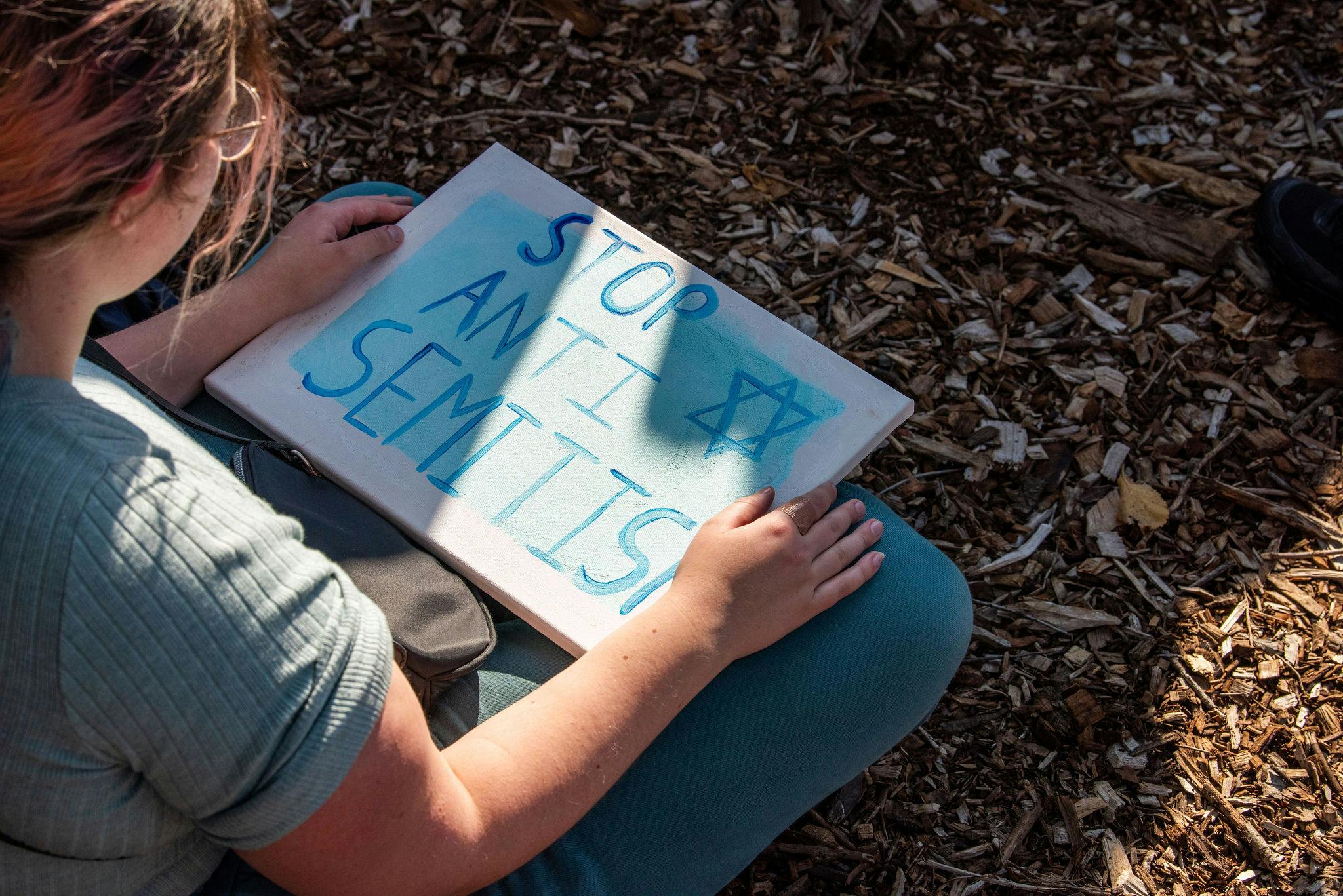Published: 26 February 2024
Last updated: 21 March 2024
Melbourne Writers Festival is the latest event damaged by Israel-Gaza tensions. But some are finding ways to have civilised discourse about the conflict.
Two weeks ago, Shai Hoffmann and Ahmad Dakhnous didn’t even know each other. Now the Israeli and Palestinian have completed an audacious three-day experiment in trying to help their fellow Germans talk more constructively about the Israel-Hamas war.
Hoffmann and Dakhnous brought a Tiny House — a one-room shed on wheels — to the Berlinale film festival this weekend and beckoned passersby: “Come in! Talk about Israel and Palestine!”
Like many other cultural events around the world, Berlin’s international film festival has been marked by protests against the Israel-Hamas war, which is now in its fifth month. Some curators and artists associated with the festival have called for a ceasefire and demanded that the festival officially do so as well.
In Australia, the issue reared its head at the Melbourne Writers Festival this week when Dr Leslie Reti, a retired Jewish clinician who served as the festival’s deputy chair for the past two years, resigned over promotional material that casts Israel as an illegitimate, settler colonialist state, accuses it of atrocities and seeks to align Indigenous Australia with the Palestinian cause.
In Berlin, the Tiny House provided a respite from the tensions. Sitting on Potsdamer Platz, where the Berlin Wall once divided east from west and where festival-goers rushed between screenings, the structure accommodated up to eight people at a time to discuss the conflict.
“A lot of people come here with a lot of questions and feelings,” said Dakhnous, who was born in a Palestinian refugee camp in Syria. “And they talk about it in the Tiny House.”
A well-placed question can prompt another person to interrogate their own position.
“My perception is that they’re very open to discuss things,” added Hoffmann.
Berlinale artistic director Carlo Chatrian has been touting the benefits of Tiny House conversations. He told Hollywood Reporter that “dialogue is possible if we start with small groups [and] provide a space where certain arguments or certain emotions can be handled better than in a theater with 500 or 1,000 people.”
The project is an extension of an educational initiative started by Hoffmann with German-Palestinian Jouanna Hassoun to discuss issues related to the Mideast conflict. Since October 7, the two have been visiting public schools in Berlin to discuss current events with teenagers.
The initiative is one attempt to create a more civil discourse around Israel/Palestine.
New York Rabbi Elliot Cosgrove wrote this week that even within the Jewish community there are gulfs over the Israel-Hamas war that are making respectful conversation difficult.
He has developed three rules for civil discourse over Israel-Palestine.
Rule No. 1: Judge generously.
You may be breathing the same air as the person in front of you, but you inhabit different worlds. Maybe you came of age under the shadow of the Shoah or the 1967 War. Remember that millennials and members of Gen Z know nothing of the history of Arab rejectionism — only a strong Abraham Accord, “startup nation” Israel that is in control of who gets what access to what piece of land.
In the digital era, the sources informing that person’s reality are also different. Their news is not your news; their social media feed is not yours. Their views need not reflect ill-will or self-hate.
Rule No. 2: Reject thought police.
There are questions that can and should be debated: Should Israel’s primary goal be to topple Hamas or free the hostages? How many lives lost are too many for either goal? Can one support Israel’s right to self-determination and still object to its government? Such questions are not betrayals.
Now is positively not the time to scold someone for expressing a different view of Israel and the resolution of its conflict with the Palestinians. We have real enemies to fight — let’s waste no energy picking someone off from within our own ranks.
Rule No. 3: Ask a good question.
A well-placed question can prompt another person to interrogate their own position and emerge from the tired and toxic slogans that dominate their social media feed. It can help you figure out the person’s intent and build dialogue and trust.
You might ask, “Don’t you think the demand for a ceasefire would be stronger if it were preceded by a demand for the release for the hostages?”
Or, “Chanting ‘from the river to the sea seems to blur the line between championing Palestinian self-determination, which I support, and calling for the destruction of the Jewish state. Is it clear to you where that line lies?”
READ MORE
A ‘Tiny House’ at Berlin’s film festival offered a safe space to talk about the Israel-Hamas war (JTA)
How to talk about Israel with someone you disagree with (Forward)
Gaza conflict engulfs Melbourne Writers Festival as leaders quit over program row (SMH)





Comments
No comments on this article yet. Be the first to add your thoughts.